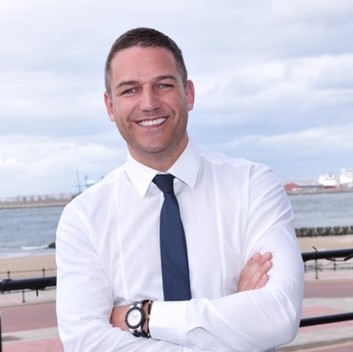Information on Cookies
To make the best use of our website, you'll need to make sure your web browser is set to accept cookies to ensure you receive the best experience.
For further information, please read our Cookies Policy.

Log In
To: IoL Members
As I write this, households and businesses across the United Kingdom are in varying states of readiness during the long-awaited emergence from lockdown. I sincerely hope that this time there is no going back.
The last year has taken much out of us all – as individuals, businesses, and organisations. Councils and police have been asked to work in new ways (often at very short notice), take on more responsibility and remain outward focused at a time of significant internal pressure. At the same time, the hospitality industry has had to weather repeated national and local lockdowns and a tier system that has often made it impossible to trade at a profit. The outcome has been stark with the months of closure leading to more than 600,000 job losses, 12,000 business failures and sales halved (meaning a reduction of £86bn).
Given this backdrop and the imminent reopening, it feels an appropriate time to draw on our Institute’s broad church approach and take a holistic view of how licensing can work best for all: operator, resident, customer and regulator.
Given the fragility of the hospitality sector, with so many businesses fighting to survive, and the wider stresses on the high street, the next few months are going to define whether we bounce back sharply from Covid or endure long term structural challenges. That picture will not be uniform across the country but rather will be heavily shaped by local intervention and partnership working on the ground.
Pre-Covid, our high streets were already in distress with a Portman Group/LGIU poll indicating that almost all councils (92%) believed that the night time economy would play an important role in preventing the decline of high street retail. That can still be the case and there remains a wealth of operators seeking to deliver hospitality-led regeneration. However, those operators are now facing significant internal challenges after a year with little to no trading but ongoing costs. Company debt, recruitment challenges and, probable, restrictions on trading, all mean the margin for error is slimmer than ever. I would hope that our typically enlightened IoL members will see the huge upside to working with responsible operators to drive vibrancy in our public spaces, provide employment and career opportunities (often to young and marginal members of the labour force) and offer great spaces for much needed communal socialising (a safer alternative to unlicensed gatherings and providing a much-needed boost to our communal mental health).
As we know from IoL events and publications, our local authority and police members are expert, engaged and pragmatic. And that pragmatism is needed now more than ever. The gains made from true partnership could be the difference between success and failure for your high streets and public spaces. Be that flexibility on licence conditions as operators reopen in new, often temporary, formats, understanding when issues arise as the sector emerges from enforced hibernation (with the hustle and bustle that returns also) or proactive investment to support the operating environment (e.g., Liverpool’s Without Walls initiative).
Partnership needs to be real and not something to which we simply pay lip-service.We have seen over the last number of months, the consequences of having the entire sector closed with a huge spike in unlicensed music events, block parties and mass gatherings in parks and open spaces.
Re-opening safely presents a management challenge to operators and regulators alike. That challenge can best be met by true partnership working and not by slipping back into outdated ‘them and us’ attitudes. A partnership is a two-way street.
Working together, we can ensure our neighbourhoods come out of this crisis as rapidly and as strongly as possible. With partnership a central tenet of our Institute, I am confident we can achieve that goal.
Daniel Davies
Chairman

